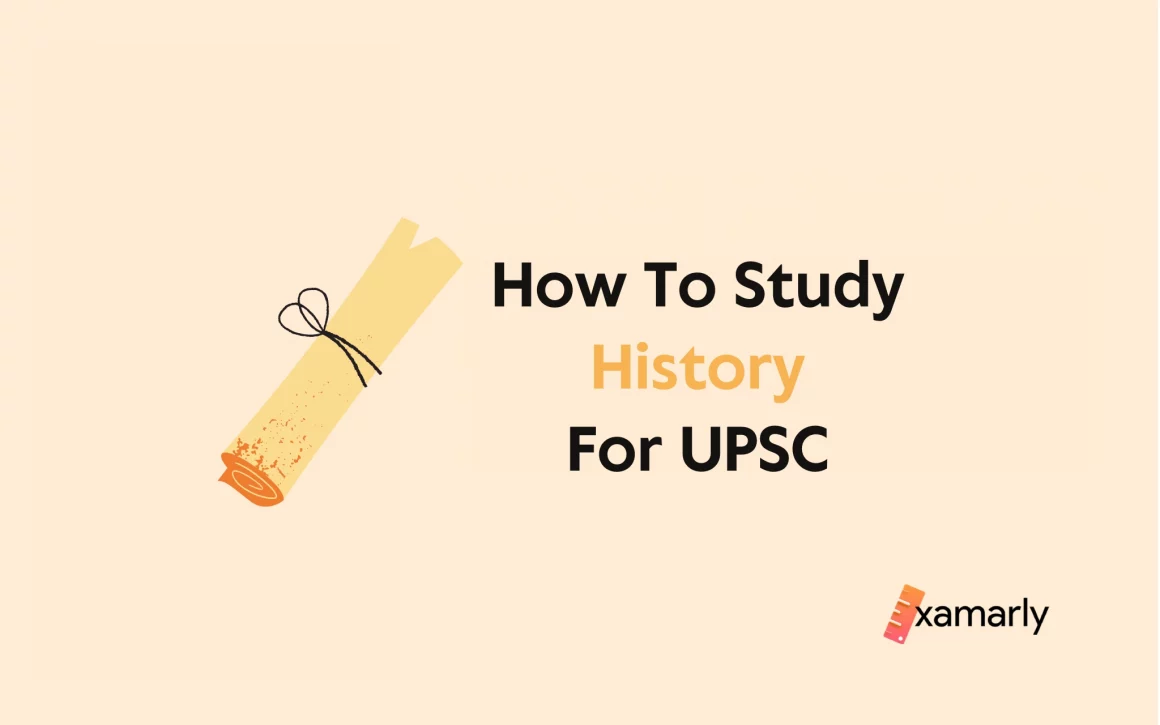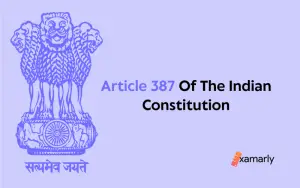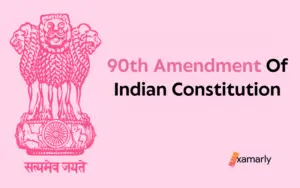“How to study history for UPSC” is a common question as the history paper is not preferred among students due to its vastness & difficulty level (been there, done that!).
However, it is an important subject for the Union Public Service Commission (UPSC) Preliminary and Main Exams in India. A lot of questions asked in the first paper of General Studies of the UPSC CSE Prelims and UPSC Mains are from historical events, art & culture.
With India being a heavily rich country in terms of history, you need to know how to study the subject for UPSC.
A civil service aspirant faces one of the toughest exams in India to be on the list of the country’s top administrators, and an in-depth knowledge of national movements and international history is essential for making important administrative decisions in a country like India.
It can be one of the reasons UPSC places a high value on this factual study. Ancient India, Medieval India, and Modern Indian History are the three sections of the syllabus in these exams.
To ace the exam particularly with this subject, you must give special attention and prepare yourself for a lot of hard work, so here’s your complete guide on how to study history for UPSC.
- Indian History in UPSC CSE: Overview
- How to Study History for UPSC?
- Points to Remember Before Starting Preparation of Indian History in Civil Services Exams
- Different Sections of India's History for UPSC Civil Services
- Important History Books for UPSC CSE Exam
- Strategy to Study History for UPSC
- Conclusion
- FAQs on How to Study History for UPSC
Indian History in UPSC CSE: Overview
1. UPSC CSE Prelims
The UPSC CSE Prelims section mainly focuses on three sections namely- Ancient India, Medieval India, and Modern India.
Modern history has a considerable share of questions every year in the Prelims section. A total of 100 questions are asked every year in the UPSC CSE Prelims General Studies paper. In 2022, 4 questions were asked from this section. In 2021, 8 questions were asked and in 2020, the number was 7.
An average of 6-7 questions are asked in this section.
There are other sections also like Ancient and Medieval India History but these sections are less asked in Prelims. If we see from 2013 to 2022 then we see that only 5-6 questions were asked from the Ancient topics and 4-5 questions from the Medieval India section.
You can clearly see that Modern India is the most important section that should be taken more seriously in the case of Prelims.
You Might Also Like To Read: UPSC Full Form.
2. UPSC CSE Mains
General Studies Paper-1
The Mains exam is typically quite lengthy. GS Paper-1 covers Modern India, India’s Post Independence, World, and Art and Culture sections along with Geography and Indian society.
- UPSC Civil Services Mains General studies paper-1 will consist of 20 questions that need to be attempted in 3 hours.
- The Paper is of a total of 250 marks with questions ranging from 10 marks to 15 marks weightage.
- The word limit for 10 marks questions is 150 words and for 15 marks is 250 words.
It has the following subtopics :
- The middle of the 18th century until the present-major events, religion, personalities, empires & issues.
- The struggle for freedom.
- Post-independence consolidation and reorganization within the country.
- World History.
Questions are mainly asked from the sections of Indian Freedom struggle, World History, and Post-Independence consolidation section.
Related Articles:
- How To Prepare For UPSC Prelims And Mains Together.
- How To Write Answers In UPSC Mains.
- How To Write An Essay In UPSC Mains.
Optional
Being one of the most lengthy subjects, it is a popular optional subjects in the UPSC Civil Services Examination. It is not always easy for a candidate to cover the whole history optional syllabus for UPSC as it has no limits and sometimes a candidate gets bored.
The topics come from the area of Ancient India, Medieval Indian History, Modern Indian History, and World History.
The main topics that are included in this area are mainly related to Archaeology, Archaeological sources, Architecture, Culture, Religion and Heritage.
History optional for UPSC has 2 papers (Paper 1 and Paper 2) in UPSC CSE Mains. Each paper is 250 marks with a total of 500 marks.
How to Study History for UPSC?
After understanding what to cover and what to skip while preparing, here some tips and methods are discussed below so that you can score good marks in this subject.
Points to Remember Before Starting Preparation of Indian History in Civil Services Exams
- This is a very expansive subject covering a wide area of topics ranging from the ancient era to the modern history. People usually don’t get the basic idea of what exactly to read and how much exactly to write.
- It happens because the subject has more reading but less outcome. You have to invest your time in a lot of books/study materials but you may not remember a lot of facts.
- However, you can write the answers very well if you have any interest or inclination towards remembering facts along with knowing about our past culture, economic policies, foreign policy, European powers, and societies.
- Every subject in Mains demands a subjective approach and your opinionated answer along with various facts and figures. History differs in one aspect totally i.e. remembering dates along with facts and figures. Remembering dates and events is not an easy task.
You Might Also Like To Read: IAS Full Form.
Different Sections of India’s History for UPSC Civil Services
1. Ancient India History
The end of the ancient period is marked by the 8th century AD, which encompasses the Stone Age, Paleolithic Age, Mesolithic Age, Neolithic Age, Chalcolithic Age, Indus Valley Civilization, and the Vedic Period.
2. Medieval India History
The period of Medieval India ranges from the eighth to the eighteenth centuries AD. Even though it is a somewhat less asked section in UPSC CSE, you can’t skip it.
3. Modern India History
Most of the students find this segment interesting in comparison to the last segments. However, interests vary from student to student.
The timeline of this section spans from the rise of British rule in India to the Indian independence movement. The majority of questions in the UPSC CSE prelims are based on this period. Organizing the topics chronologically and unit-wise will be beneficial for aspirants.
Important History Books for UPSC CSE Exam
Referring to the right books and making a detailed plan with the help of these books will surely help you. These are some standard prescribed books for the UPSC Civil Services Exam like NCERT books by Bipan Chandra.
1. Ancient Indian History
- NCERT Class VI: Ancient India (Old Edition).
- NCERT Class XI: Ancient India (Old Edition).
2. Medieval Indian History
- NCERT Class VII, XI: Medieval India (Old Edition).
- NCERT Class IX: Story of Civilization Part-I (Old Edition).
- NCERT Class X: Story of Civilization Part-II (Old Edition).
3. Modern Indian History
- India’s Ancient Past: R.D. Sharma.
- Indian Art & Culture: Nitin Singhania.
- India’s Struggle for Independence: Bipan Chandra.
Strategy to Study History for UPSC
- Familiarize yourself with the syllabus and the weightage given to different topics.
- Make a timeline of Indian history, from ancient to modern times, which will help you to visualize the events chronologically.
- Read NCERT textbooks for a basic understanding of each topic, including the Ancient, Medieval, and Modern periods.
- Read secondary sources for a deeper understanding of the topics, like books by Romila Thapar, Bipan Chandra, Satish Chandra, Rajiv Ahir, etc.
- Read newspapers, magazines and online articles to stay updated on current affairs and the historical context of current events.
- Make notes while studying, which will help you to revise later.
- Practice writing essays and answers to factual questions to improve writing skills and speed.
- Solve previous year question papers and mock tests to assess your preparation level and identify areas that need improvement.
- Take breaks and avoid cramming, as it may lead to burnout and negatively affect your performance.
- Stay motivated and focused on your goal, and remember that preparing for the UPSC exam is a marathon and not a sprint.
You Might Also Like To Read: UPSC Preparation Strategy.
Conclusion
Being a civil servant in India doesn’t mean that you just need to grasp book knowledge but you should also follow the latest trends and be ready to include them in your decision-making. If you want to score well in this UPSC CSE paper, follow this guide.
FAQs on How to Study History for UPSC
What are the best books to study history for UPSC?
NCERT textbooks, Bipan Chandra’s “India’s Struggle for Independence,” and Romila Thapar’s “A History of India” are considered some of the best books to study history for UPSC.
How to prepare ancient history for UPSC?
Apart from NCERT books and standard reference books, focus on understanding the Indus Valley Civilization, Vedic period, Maurya Empire, Gupta Empire, and major dynasties.
How to prepare medieval history for UPSC?
Focus on the Delhi Sultanate, Mughal Empire, regional kingdoms, administrative systems, cultural developments, and major events and battles. Do not skip NCERT books and standard reference books.
How to prepare modern history for UPSC?
Read NCERT & standard reference books while focusing on the 1857 Revolt, Indian National Movement, formation of the Indian Republic, and major political, social, and economic developments.
How to prepare world history for UPSC?
Pay attention to ancient civilizations, major wars, revolutions, imperialism, and their impact on the world while reading NCERT and standard reference books.






